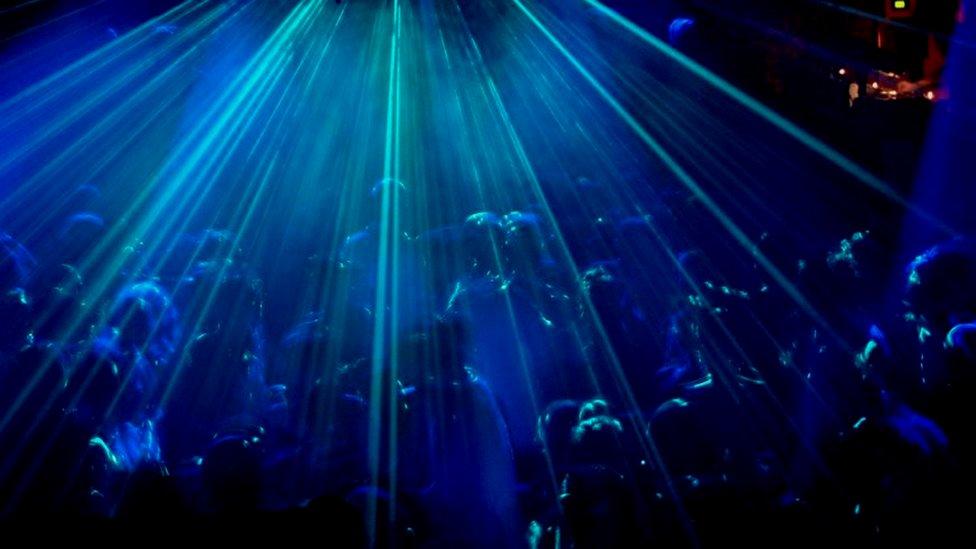Hackney licensing changes 'will kill east London nightlife'
- Published
- comments
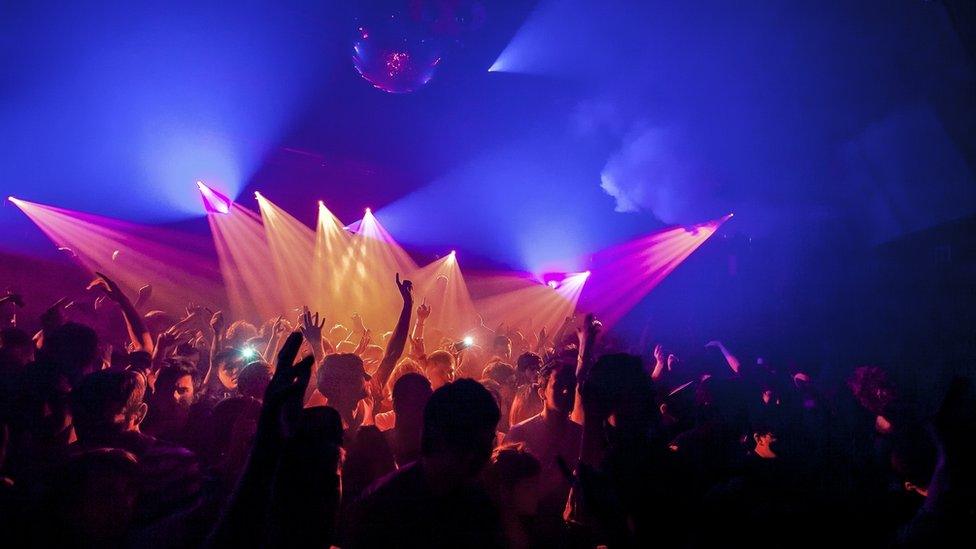
One year ago the mayor of London unveiled his vision for the capital to become a "trailblazing 24-hour city".
Now businesses are warning new licensing rules could kill one of the city's top nightlife hotspots.
Hackney is the hipster hub of east London and areas like Shoreditch are known for their craft beer pubs, street food markets and nightclubs.
But the local borough council says the concentration of late-night venues needs to be better managed to reduce the impact on neighbours.
It has approved plans for "core" curfews of midnight at weekends and 23:00 during the week for all new venues, with the onus on businesses to prove they will not have a negative impact on the area if they want to open later.
It also plans to double the size of the Shoreditch "special policy area" within which venues must show they will not add to anti-social behaviour, crime and noise.
Jonathan Downey owns night markets across London, including Dinerama in Shoreditch. He said the new policies are a "huge mistake".
"I've been operating bars, restaurants, clubs and night markets in London for more than 20 years. In that time this is the worst thing that's happened to the city's nightlife.
"It will kill the area's night-time economy," he said.
The council insists the objective is to strike a balance between the night-time economy and the needs of residents. It says the changes are not a "blanket ban", with businesses allowed to open later if they can prove they won't have a negative impact on an area.
But Kerry Maisey, who owns Ridley Road Market Bar in Dalston, said this approach would be "disastrous" for small independents.
"They can't afford the legal representation that might get you around the new policy. We're going to see a complete stop to those types of businesses opening because they will look elsewhere.
"It leaves a big space for existing venues to dominate, chains to move in and the nightlife stagnates," she said.
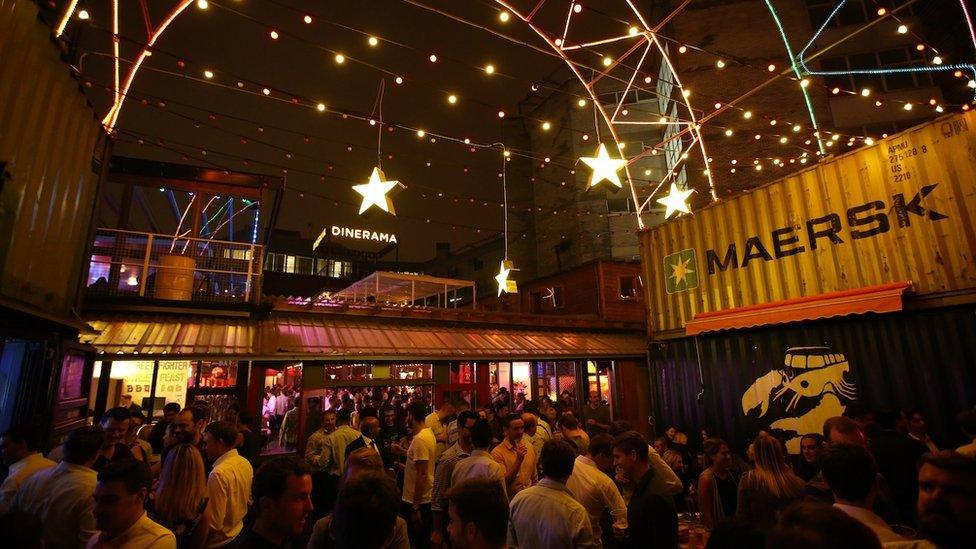
Jonathan Downey, who owns Dinerama in Shoreditch, says the policy will stop new venues opening.
James Rompani, 35, works as a DJ and promoter and has lived in Hackney for eight years.
"New venues are key to promoting talent and emerging artists as it gives them a platform. This policy is going to have a long-term effect."
Caroline Selman, Hackney Council's Cabinet member with responsibility for licensing, said the council was happy to support businesses to open and would consider any responsible applicants.
But Mr Downey said the changes would deter new venues and could lead to the area changing in the same way that central London did more than 10 years ago.
"Soho is all restaurants now and it's the same with Leicester Square. The night-time economy moved east. But now the same thing could happen in Hackney."
Anti-social behaviour
Anne Paillard, 31, moved to Hackney six years ago from Paris, with the area's nightlife a key pull.
"I was supposed to stay in London for a year but I fell in love with the nightlife. But since I moved a lot of clubs have closed. London needs to keep its nightlife alive if it wants to be attractive."
Of the 680 people who responded to a consultation on the changes, 73% were against them.
Ms Selman said the council took the responses "seriously" but also had to take into account residents suffering from noise and anti-social behaviour.
Dip Patel, who has lived in Shoreditch for more than 40 years, supports the changes.
"There are lots of good businesses that make sure the streets are cleared and the music is down when it gets late," he said.
"It's the ones that allow people to drink in the streets and make noise that are a problem. It's impacted my children when they have exams and they don't want to live here anymore because of the noise."
Another resident, Andrew Clarke, said the "unfettered expansion" of late-night venues in the area was having a detrimental impact.
"If you walk around Shoreditch on a Sunday morning the place is covered with litter, broken glass and vomit," he said.
But Dan Beaumont, who owns the nightclub Dalston Superstore, said the council's approach was misguided.
"I don't believe this policy will tackle crime or anti-social behaviour. In fact we'll see an increase in noise complaints from illegal raves, house parties and street drinking," he said.
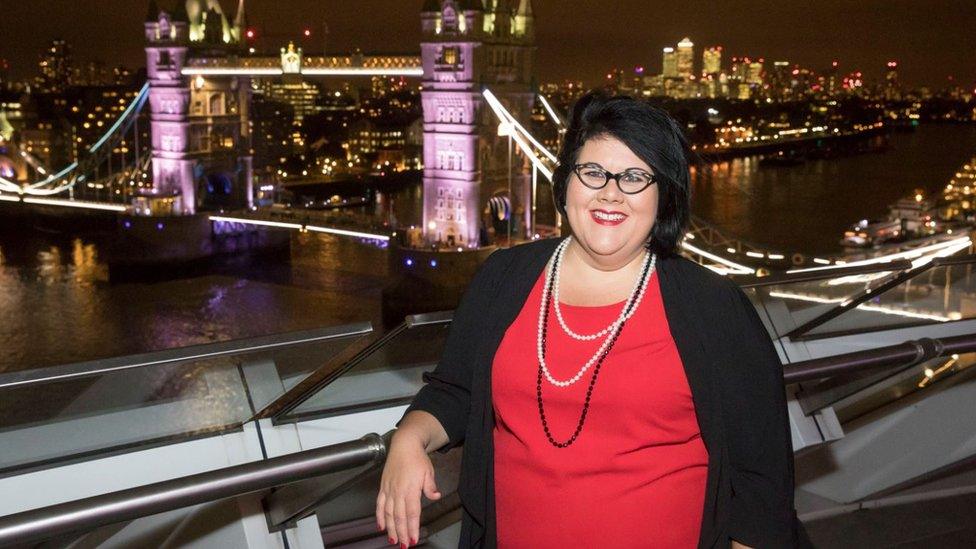
Amy Lamé became London's first "night tsar" in 2016.
Amid the backlash, campaigners say London's Mayor, Sadiq Khan, and the capital's first ever night czar, Amy Lamé, have been surprisingly quiet.
"Where is the mayor of London? It's been five days now. He's tweeting about international busking day but not about how Hackney is closed for business in a 24-hour city," said Mr Downey.
In response to the plans Amy Lamé tweeted that local authorities were responsible for licensing decisions.
But she later said she had demanded an urgent meeting with Hackney's Mayor, Philip Glanville, and was concerned the new restrictions in the borough would "stifle its world-renowned nightlife".
However Mr Glanville replied that she had been "consulted throughout the process", while opponents expressed frustration at the apparent lack of power of the city's nightlife figurehead.
Meanwhile, the debate has become increasingly divisive. Mr Beaumont said nightlife should not be presented as "the problem".
"It's being painted as a conflict between ravers and residents. But ravers are residents, they live here too."
- Published10 August 2015

- Published7 October 2016
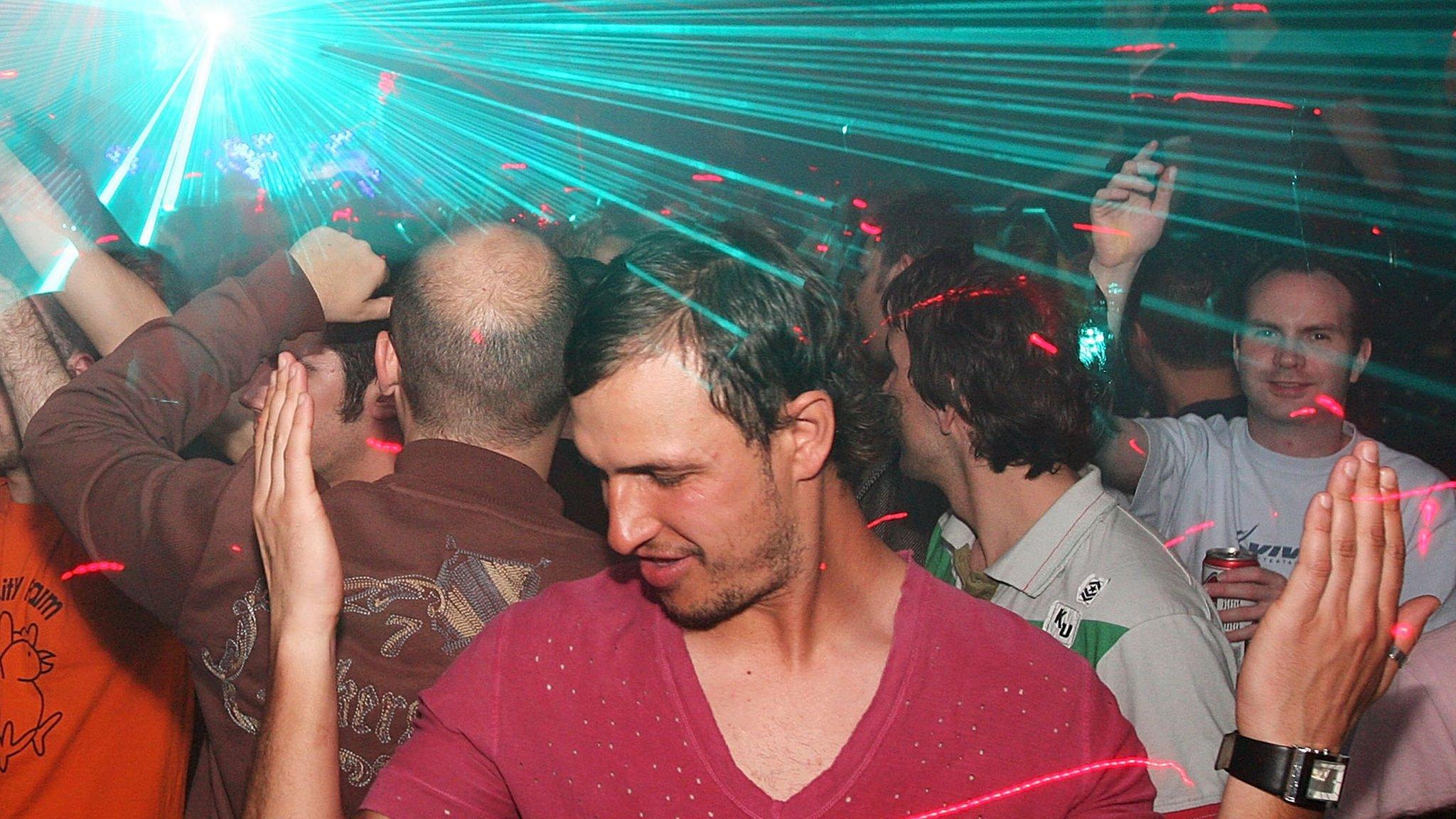
- Published4 November 2016
